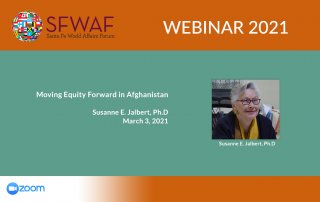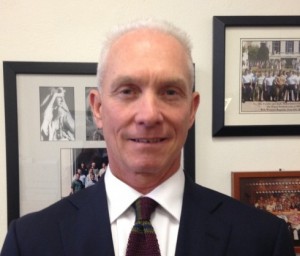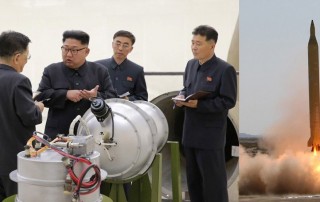The Intent and Reality of Foreign Assistance to Afghanistan: Experience from Obama’s Surge
March 09, 2022
Rebecca Black
The U.S. government spent $145 billion to rebuild and develop Afghanistan over the past 20 years. Funds were implemented by a dozen USG agencies including USAID, a major player in supporting a range of activities, from building roads and power plants to improving education and health, governance, and income generation. Themes of democracy and women’s empowerment played alongside counterinsurgency and stability. Funding was big and pressure strong to deliver results in a country with diverse cultures and geography, and limited access due to the nature of war.

Rebecca Black served 25 years as a Foreign Service Officer with USAID, achieving the rank of Minister Counselor in the Senior Foreign Service. She most recently served as USAID Mission Director for Cambodia and for Mali, managing a diverse portfolio including health, education, agriculture, and governance.
Ms. Black served as the Deputy Mission Director for USAID Afghanistan and as economic and urban environment program director in India, South Africa, and Poland. Ms. Black began her professional career in community economic development in Boston, Massachusetts, following completion of a master degree from the Massachusetts Institute of Technology. Ms. Black now lives in New Mexico, working occasionally on international development assignments, and volunteer engagements.



 Paul Cruickshank comes from a military background, having served with the British Army for 20 years. He is a graduate of the British Army Command and Staff College (1994-1995), and was later appointed Member of the British Empire (MBE) by Queen Elizabeth II in 1999, for his contribution to strategic military planning for peace support operations in the Balkans. His last deployment in the army was to Afghanistan at the end of 2001 as part of the international effort to remove the Taliban regime and commence reconstruction across the country.
Paul Cruickshank comes from a military background, having served with the British Army for 20 years. He is a graduate of the British Army Command and Staff College (1994-1995), and was later appointed Member of the British Empire (MBE) by Queen Elizabeth II in 1999, for his contribution to strategic military planning for peace support operations in the Balkans. His last deployment in the army was to Afghanistan at the end of 2001 as part of the international effort to remove the Taliban regime and commence reconstruction across the country.


 A former U.S. Foreign Service Officer, Todd Greentree has served in five wars, from El Salvador in the early 1980s to Afghanistan between 2008 and 2012.
A former U.S. Foreign Service Officer, Todd Greentree has served in five wars, from El Salvador in the early 1980s to Afghanistan between 2008 and 2012. 
